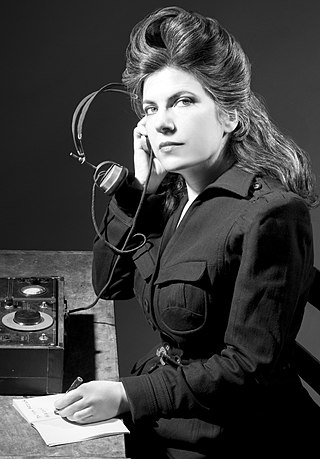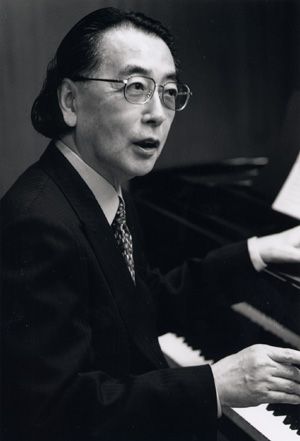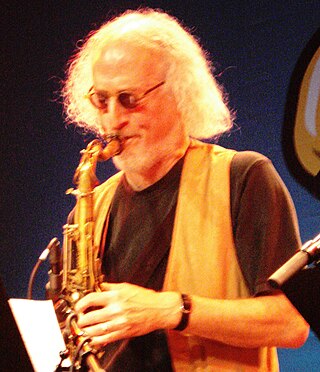
Jeremy Webster "Fred" Frith is an English multi-instrumentalist, composer, and improviser. Probably best known for his guitar work, Frith first came to attention as a founding member of the English avant-rock group Henry Cow. He was also a member of the groups Art Bears, Massacre, and Skeleton Crew. He has collaborated with a number of prominent musicians, including Robert Wyatt, Derek Bailey, the Residents, Lol Coxhill, John Zorn, Brian Eno, Mike Patton, Lars Hollmer, Bill Laswell, Iva Bittová, Jad Fair, Kramer, the ARTE Quartett, and Bob Ostertag. He has also composed several long works, including Traffic Continues and Freedom in Fragments. Frith produces most of his own music, and has also produced many albums by other musicians, including Curlew, the Muffins, Etron Fou Leloublan, and Orthotonics.

Annie Gosfield is a New-York-based composer who works on the boundaries between notated and improvised music, electronic and acoustic sounds, refined timbres and noise. She composes for others and performs with her own group, taking her music to festivals, factories, clubs, art spaces and concert halls. Much of her work combines acoustic instruments with electronic sounds, incorporating unusual sources such as satellite sounds, machine sounds, detuned or out-of-tune samples and industrial noises. Her work often contains improvisation and frequently uses extended techniques and/or altered musical instruments. She won a 2012 Berlin Prize.

Carla Kihlstedt is an American composer, violinist, vocalist, and multi-instrumentalist, originally from Lancaster, Pennsylvania and currently working from a home studio on Cape Cod.

Toshi Ichiyanagi was a Japanese avant-garde composer and pianist. One of the leading composers in Japan during the postwar era, Ichiyanagi worked in a range of genres, composing Western-style operas and orchestral and chamber works, as well as compositions using traditional Japanese instruments. Ichiyanagi is known for incorporating avant-garde techniques into his works, such as chance music, extended technique, and nontraditional scoring. Ichiyanagi was married to artist Yoko Ono from 1956 to 1962.
Tim Perkis is an experimental musician and writer who works with live electronic and computer sound.
Chris Brown is an American composer, pianist and electronic musician, who creates music for acoustic instruments with interactive electronics, for computer networks, and for improvising ensembles. He was active early in his career as an inventor and builder of electroacoustic instruments; he has also performed widely as an improviser and pianist with groups as "Room" and the "Glenn Spearman Double Trio." In 1986 he co-founded the pioneering computer network music ensemble "The Hub". He is also known for his recorded performances of music by Henry Cowell, Luc Ferrari, and John Zorn. He has received commissions from the Berkeley Symphony, the Rova Saxophone Quartet, the Abel-Steinberg-Winant Trio, the Gerbode Foundation, the Phonos Foundation and the Creative Work Fund. His recent music includes the poly-rhythm installation "Talking Drum", the "Inventions" series for computers and interactive performers, and the radio performance "Transmissions" series, with composer Guillermo Galindo.

Eleventh Hour is a double album by English guitarist, composer and improvisor Fred Frith. It comprises five long pieces composed by Frith between 1990 and 2001, and was performed by the Arditti Quartet (strings) with Uwe Dierksen (trombone), William Winant and Frith, in Germany and the United States in 2003 and 2004. Frith only plays on the second CD of this album.

Gino Robair is an American composer, improvisor, drummer, percussionist, and magazine editor. In his own music work, he plays prepared/modified percussion, analog synthesizer, ebow and prepared piano, theremin, and bowed objects. Robair resides in the San Francisco Bay Area, California.

Alla Zahaikevych is a Ukrainian composer of contemporary classical music, performance artist, organiser of electroacoustic music projects, musicologist. Her name is alternatively spelled Alla Zagaykevych on all releases and in texts which are in English.

Earl Howard is an American avant-garde composer, arranger, saxophonist, synthesizer player and multi-instrumentalist.

Jennifer Walshe is an Irish composer, vocalist and artist.
Maybe Monday is an American experimental electroacoustic improvisation music ensemble comprising guitarist Fred Frith, koto player Miya Masaoka and saxophonist Larry Ochs. The trio was formed in San Francisco in March 1997 when they performed in a concert at the Great American Music Hall. They have since toured the United States, Canada and Europe, and released three albums between 1999 and 2008.

Larry Ochs is an American jazz saxophonist, co-founder of the Rova Saxophone Quartet and Metalanguage Records.

Joan Jeanrenaud is an American cellist. A native of Memphis, Tennessee, she played with the Kronos Quartet from 1978 until 1999, when, after a sabbatical, she left to pursue a solo career and collaborations with other artists, in part due to being diagnosed with multiple sclerosis. She has staged and recorded solo performance pieces, playing the cello in tandem with electronic instruments. Her first solo album, Metamorphosis, was described by Greg Cahill in Strings as "visceral, hypnotic, and often compelling."
Theresa Wong is an American cellist, vocalist, composer and improviser in the field of experimental music. In 2013 she lived in the San Francisco Bay Area.

Digital Wildlife is an album by composer and guitarist Fred Frith's group Maybe Monday which was released on the Winter & Winter label.

Malika Kishino is a Japanese composer based in Cologne, Germany.
Nicole Lizée is a Canadian composer of contemporary music. She was born in Gravelbourg, Saskatchewan and received a MMus from McGill University. She lives in Montreal, Quebec. At one time, she was a member of The Besnard Lakes, an indie rock band from Montreal.

All Is Always Now – Live at The Stone is a 2019 three-CD box set of live improvised music performed by English guitarist Fred Frith with other musicians, including Theresa Wong, Ikue Mori, Pauline Oliveros and Laurie Anderson. It was recorded between 2007 and 2016 at The Stone in New York City, and was released in March 2019 by Intakt Records in Switzerland.

Unsquare is a 2008 studio album by Maybe Monday, a San Francisco based experimental electroacoustic improvisation music ensemble featuring guitarist Fred Frith, koto player Miya Masaoka and saxophonist Larry Ochs. It is their third album and includes guest musicians Gerry Hemingway, Carla Kihlstedt, Ikue Mori and Zeena Parkins. Unsquare was recorded at East Side Sound Studio in New York City on November 18, 2006, and was released by Intakt Records in Switzerland in January 2008.
















